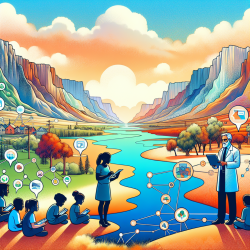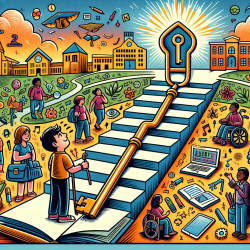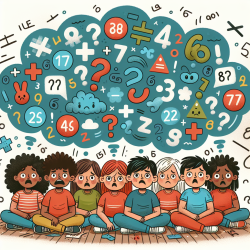Introduction
As professionals dedicated to improving outcomes for children through online therapy services, it is crucial to continually refine our skills and methodologies. One way to achieve this is by integrating insights from diverse fields of research. The recent publication of the Harmonized Database of Western U.S. Water Rights (HarDWR) v.1 offers valuable lessons in data harmonization and consistency that can be applied to our practice.
Understanding HarDWR
The HarDWR project, detailed in the research article Harmonized Database of Western U.S. Water Rights (HarDWR) v.1, provides a comprehensive and consistent database of water rights across 11 Western U.S. states. This database harmonizes terminology, formats data for consistency, and ties records to a shapefile of water administrative boundaries. The primary goal is to facilitate region-wide analysis of water needs and shortfalls, which can be challenging due to varying state regulations and data formats.
Applying HarDWR Principles to Online Therapy
Here are some key takeaways from the HarDWR project that can enhance our online therapy services:
- Data Consistency: Just as HarDWR harmonizes water rights data across different states, we should strive for consistency in our therapy data. This includes standardizing assessment tools, treatment protocols, and progress tracking methods across different schools and regions.
- Quality Control: HarDWR's rigorous quality control processes ensure the reliability of its data. Similarly, implementing strict quality control measures in our therapy services can help maintain high standards and improve outcomes for children.
- Interdisciplinary Collaboration: The HarDWR project involved collaboration among hydrologists, economists, and data scientists. Embracing interdisciplinary collaboration in our field can lead to innovative approaches and more comprehensive care for children.
- Data-Driven Decisions: HarDWR provides valuable data for analyzing water allocation and management. By leveraging data-driven decision-making in our practice, we can tailor interventions to meet the specific needs of each child more effectively.
Encouraging Further Research
While the HarDWR project focuses on water rights, its principles can inspire further research in our field. For instance, we can explore how data harmonization and quality control can be applied to create a unified database of therapy outcomes. Such a database could provide valuable insights into the effectiveness of different interventions and help identify best practices.
Conclusion
The Harmonized Database of Western U.S. Water Rights (HarDWR) v.1 offers valuable lessons in data consistency, quality control, and interdisciplinary collaboration. By applying these principles to our online therapy services, we can enhance our practice and improve outcomes for children. To read the original research paper, please follow this link: Harmonized Database of Western U.S. Water Rights (HarDWR) v.1.










